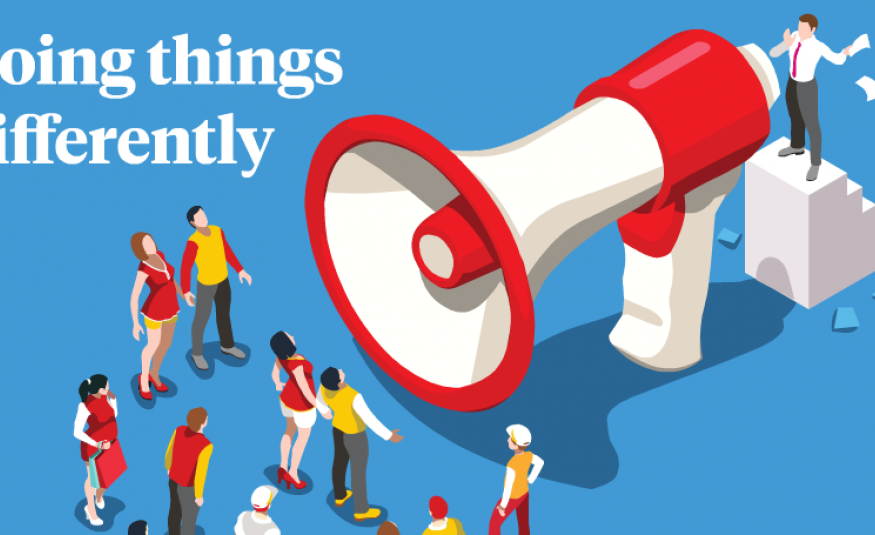Adaptating our business approach will help us create the events that bring in a new audience, say Eddie Choi and Francis Friedman.
The theme for this year’s UFI European Conference was ‘Futureproofing your Events’. Among the speakers waxing lyrical on the subject were Eddie Choi and Francis Friedman, both of who have a broad range of experience in launching events, advising organisers, driving industry research and even helping Google to make the transition into live events.
It’s a grand statement, ‘futureproofing’, but in essence the event sought to illuminate emerging trends so that organisers and companies involved in international exhibitions can plot a wise course or take corrective action in order to prepare for what lies ahead. Hybrid events, alternative venues and most importantly, a playing field marked out by rapidly evolving technology, the next generation of exhibitions will be matched in its variety only by the audience that attends.
If we are to be ready then we need to have a culture that is prepared for this change, explained Eddie Choi, managing partner at Mills Design in Singapore.
“In the past we profited from transaction. Presently we are profiting from relationships. In the past we were delivering value to our customer, now we are creating value with the customer,” said Choi.
“In the past it was company-to-company competition, now it is an ecosystem-to-ecosystem competition. We no longer deal with a single company, we deal with an ecosystem. If you think you’re competing with Facebook, then you’re competing with President of Time & Place Strategies Francis Friedman said that in order to be ready for this new way of engaging the market, we need to reconfigure our businesses first.
“Ask yourself what lies ahead and how you have to change your organisation and processes to make them future-proof for the next generation of customers and new competitive business models,” he said.
“We have to accept that there will be new competitive business models. There will be ones that are viable and segmented for aspects of the business that we haven’t thought of yet. What will those mean for future trends?
Above all else, Friedman claimed we need to understand we are in the attendee business, not the exhibitor business.
“For me, the future industry model is this: We are in the value-added attendee content provider business. All media, all formats. The education programme is obviously content, but so are the exhibitors. All we do is to produce content that attendees want to consume.
“So if we’re going to produce content in the physical form of what we call a tradeshow, why can’t we also produce content in newsletters, webinars, seminars and directories. Because theoretically in the sector in which you work, you are the content expert.”
Thematically, Friedman seems to be placing a clear parallel between a live event and a magazine. Which makes a lot of sense when you consider how many exhibition and events companies started out as publishers.
Non-traditional events for a non-traditional audience
Working with Google was a “great experience” for Choi. “Google approached us and said ‘I need to organise an event – what is the best way to do this?’ Throughout the entire conversation we didn’t talk about the floorplan or the size of the venue, instead we talked about what kind of content we should create to keep people in the event.”
This was particularly important for Google’s event profile, which was to present Google technology and allow the attendees to experience artificial intelligence technology in an easy-to-understand way.
“They didn’t even know if it was artificial intelligence. The registration, the queuing system, the planning – that was totally different. We asked ‘can we just drop the registration?’. We don’t need the registration; we need to impress the people. Bring them in first, and if they want to know more they leave the registration with us. Why not spend that effort on creating the content, understand how to make use of the technology and to create an immersive experience. This is what inspires me.”
Which brings us back to future-proofing our events, and specifically the need to begin the process at home. This new way of thinking about events will only happen if we bring the right talent into our organisations.
“We are still employing managers, whereas we need to be employing analysts and visionaries,” said Choi. “All the young people, the next generation – they are not joining to follow your protocol. They are joining to share with you how they understand the situation from a different view.
“Today I work with analysts. I no longer pursue the corporate ladder to be the manager. I want to analyse. In the present time we produce data, in the future we will power by data.”
Read the feature in issue 3 | 2018 of Exhibition World, here: http://joom.ag/hgwY/p28






